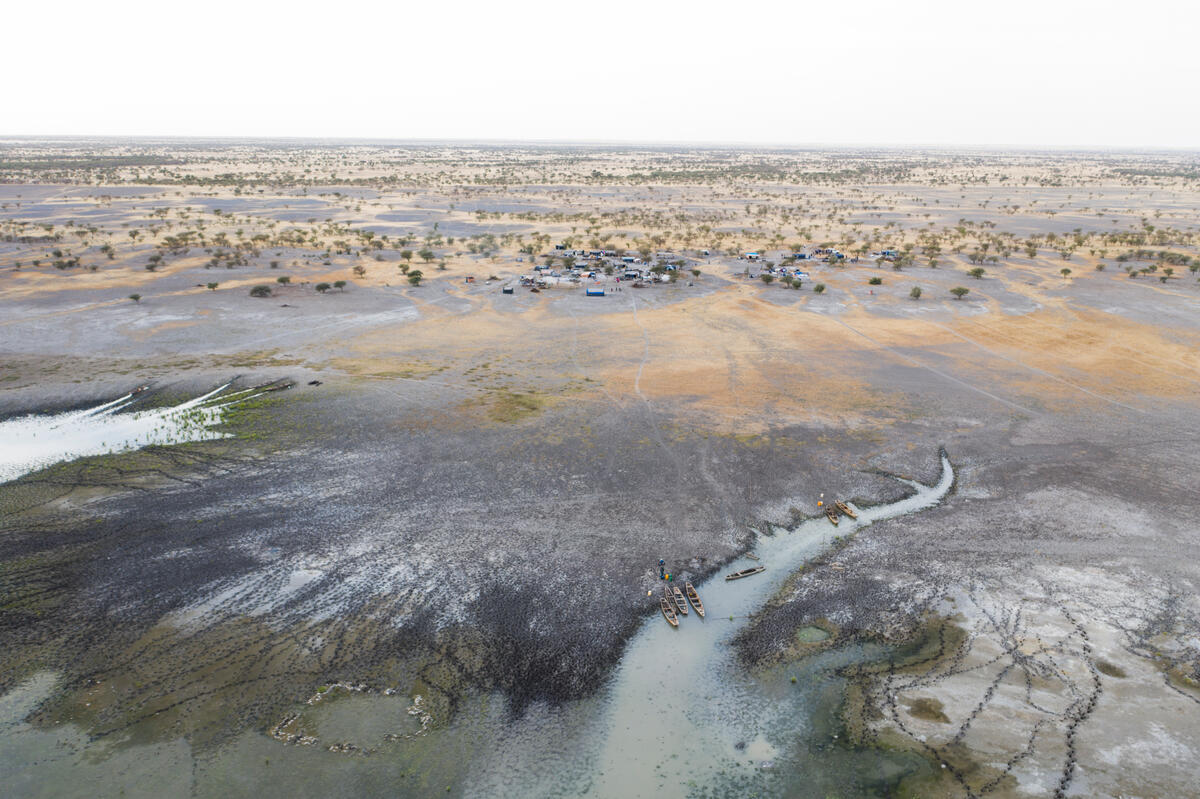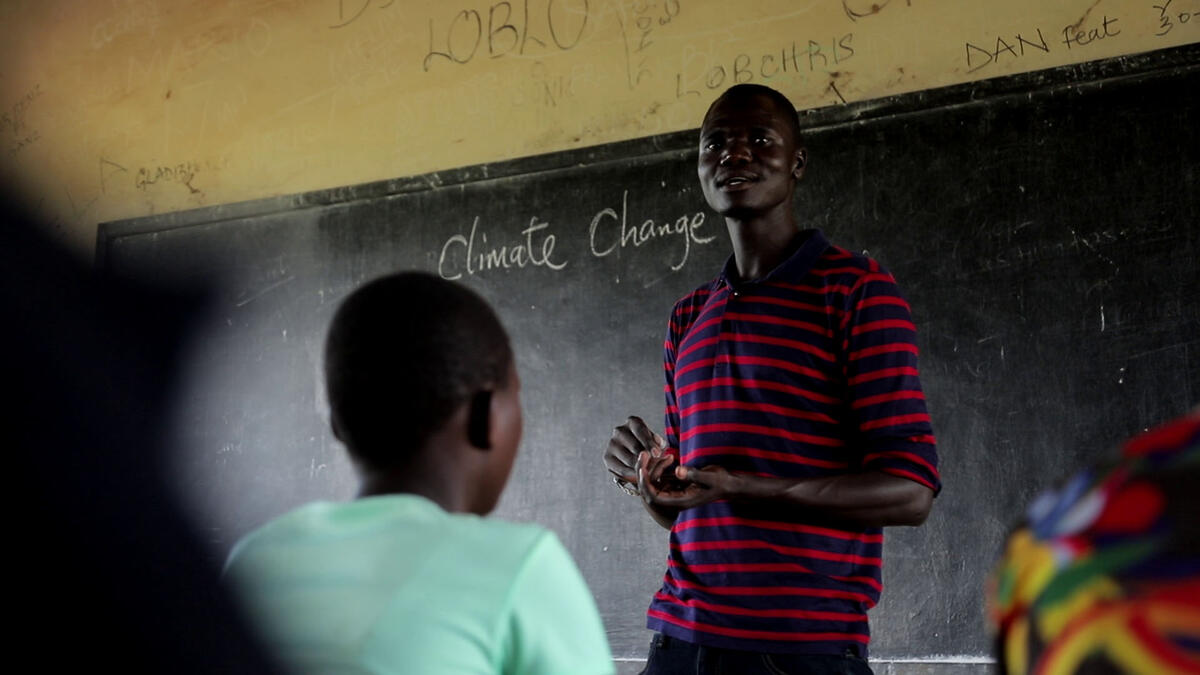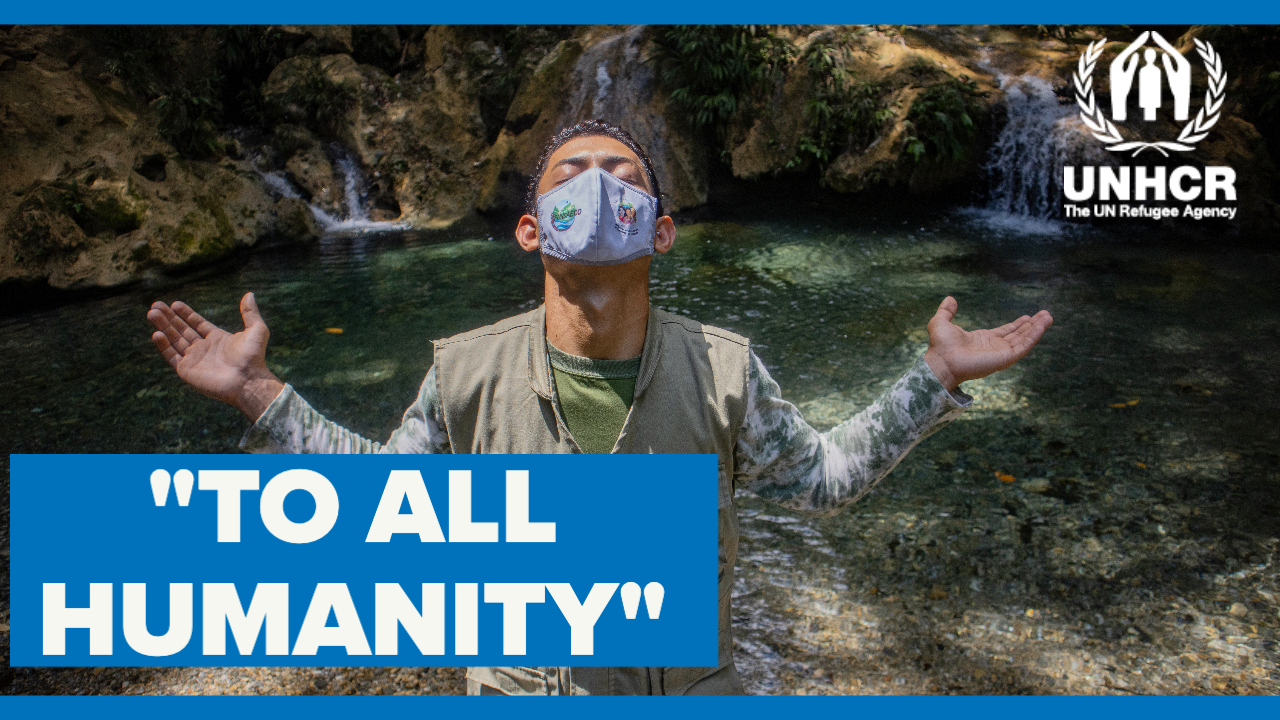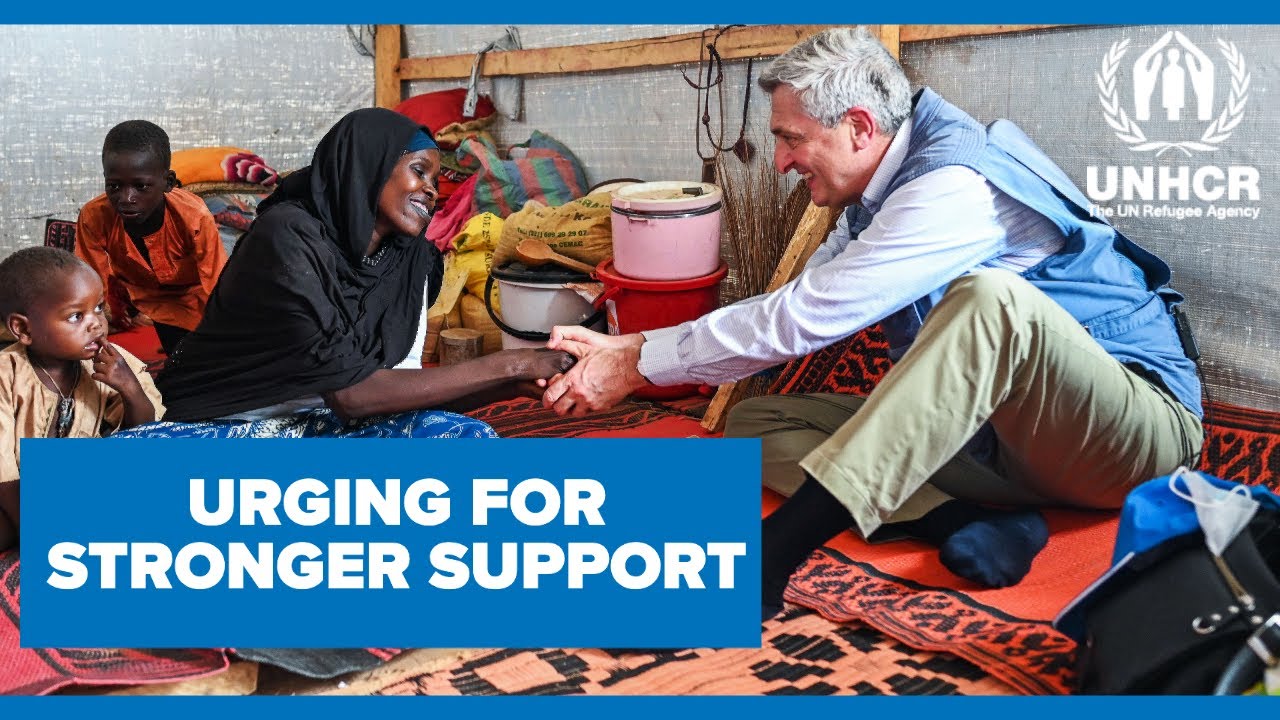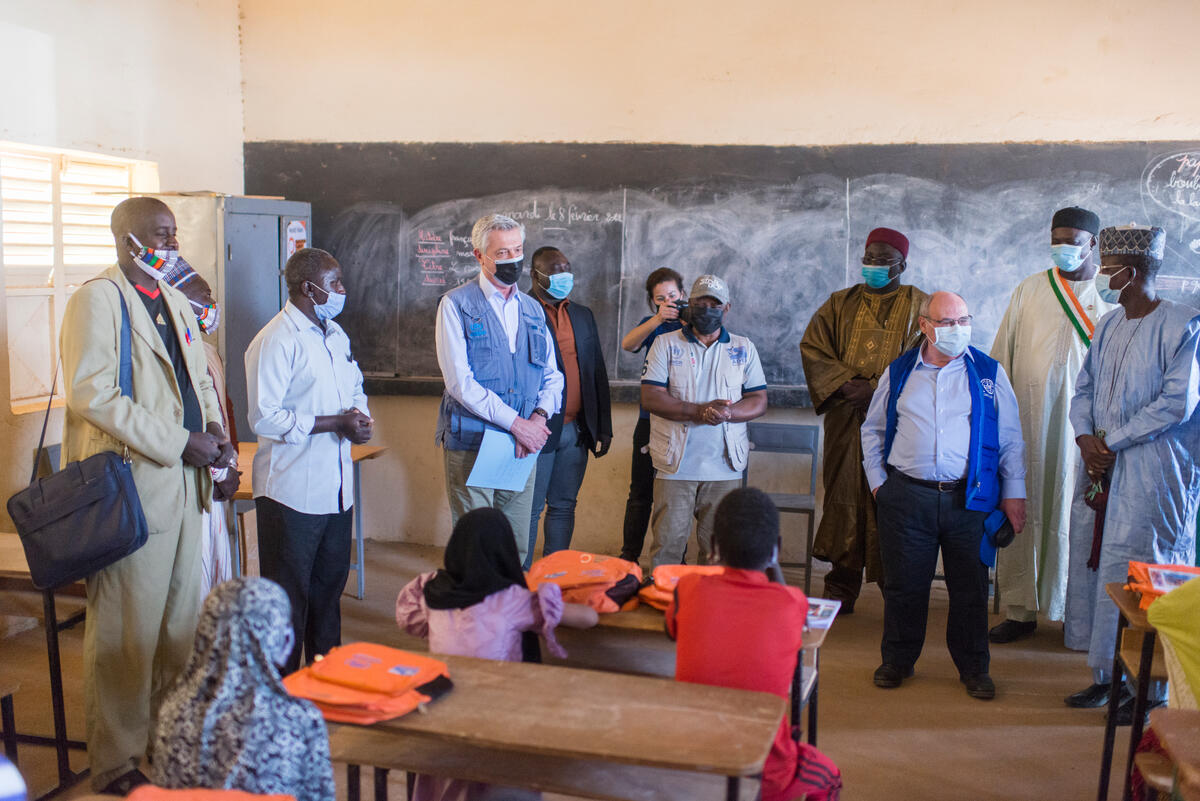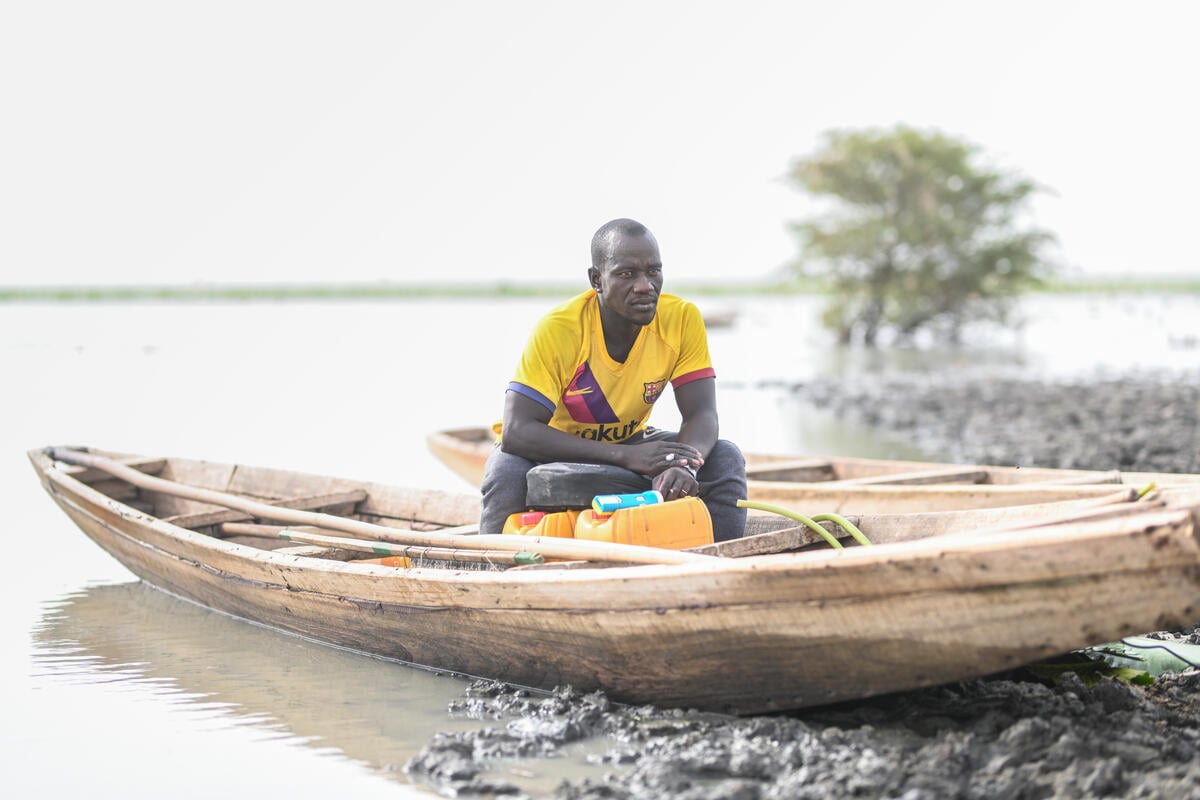UNHCR backs environment plan with pledge to plant 9 million trees
UNHCR backs environment plan with pledge to plant 9 million trees

GENEVA, May 18 (UNHCR) - The UN refugee agency has pledged to support a major environmental programme by planting and caring for more than 9 million trees this year in areas of human displacement. The gesture is aimed at making up for some of the environmental damage caused by refugees and displaced people around the world and to fight climate change.
"The main problem in areas of displacement is deforestation as refugees and internally displaced persons need to cut and collect wood for cooking, to provide light, for construction and for natural medical ingredients and fodder," explained UNHCR Environmental Senior Officer Valentine Ndibalema. "People also cut down trees to create areas for cultivation or to sell the wood in markets and have an additional income."
The resultant damage is a major concern for host countries and local populations because the land can take years, if ever, to recover. Ndibalema said UNHCR wanted to help in some way and so decided to join a major tree-planting campaign run by the UN Environmental Programme (UNEP).
UNEP launched "Plant for the Planet: The Billion Tree Campaign" in November last year and it has so far won pledges to plant more than 960 million trees, while almost 14 million have actually been planted to date. The agency is encouraging individuals, communities, business and industry, civil society organizations and governments to take part.
"This kind of programme is crucial to fight against deforestation, which increases the risks of global warming as there are less trees to absorb carbon dioxide from the atmosphere," said Ndibalema, adding that planting of new trees and care of old ones helped protect against soil erosion and increase fertility.
UNHCR will enlist the help of refugees and host communities as it pursues the goal of planting 9 million trees this year. Seedlings of various types of tree are being produced and will be distributed for planting around shelters and homes or for reforestation of denuded areas.
In Tanzania, for instance, the goal is to plant more than 2.6 million saplings in and around refugee camps. Some planting has taken place in April and May. In Sudan, 1.7 million trees will be planted later this year in settlement areas for refugees and displaced people as well as around the homes of host communities. The target in neighbouring Ethiopia is to plant 1.8 million trees.
The idea for the UNEP campaign was inspired by Nobel Peace Prize laureate Wangari Maathai, whose Green Belt Movement has planted more than 30 million trees in 12 countries in Africa since 1977.
UNHCR and its implementing partners have developed programmes to educate refugees and displaced people about the environment and show them how to plant and care for a tree. The agency has helped plant trees over hundreds of thousands of acres of land in Asia and Africa since the 1990s.
"At the beginning, refugees were reluctant to plant trees and to take care of them, they thought they would be back soon to their countries and did not see the point of engaging in a long-term project," said Ndibalema. "Then they realized they would get benefits from planting, such as shade, fruit and stabilizing the soil."

